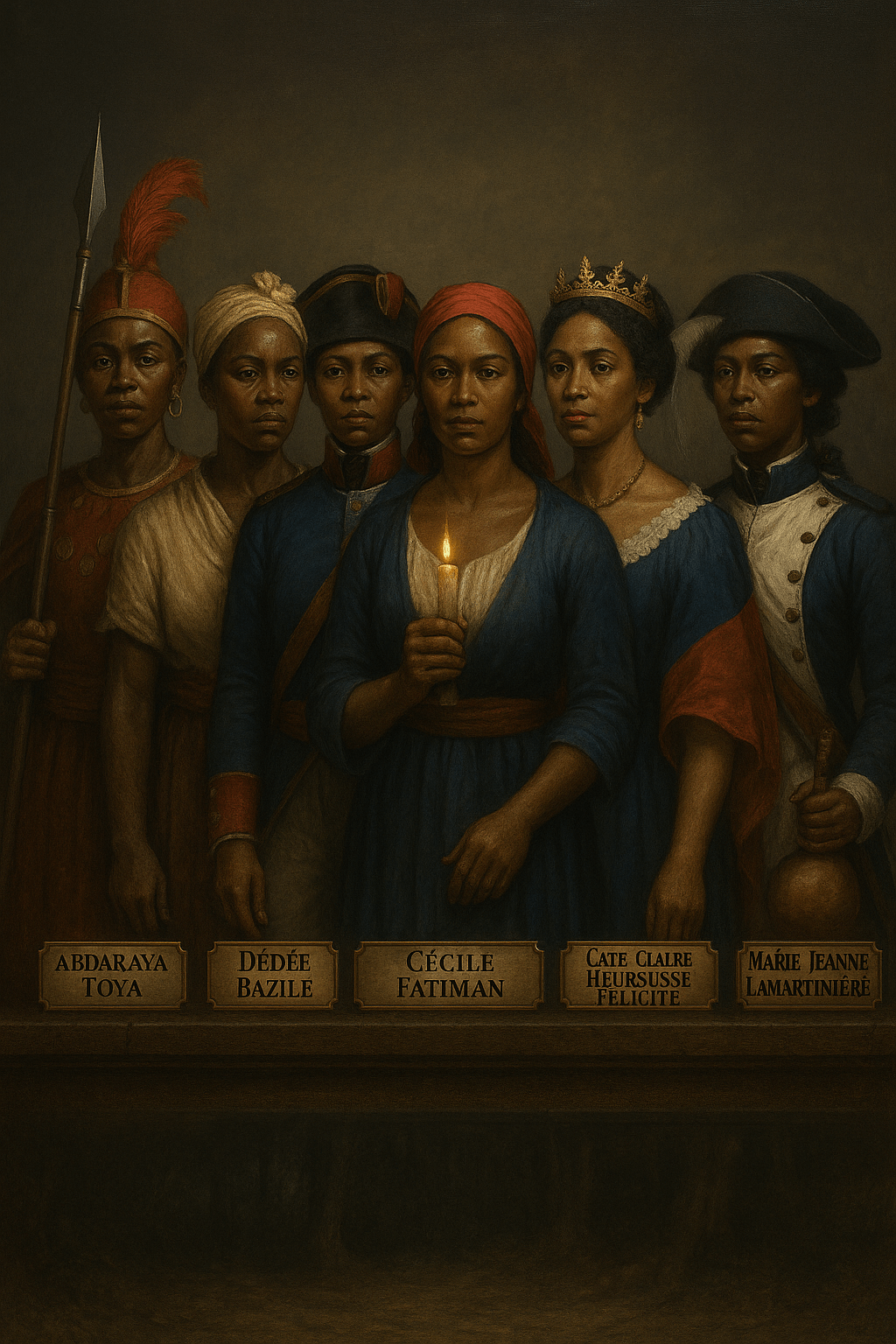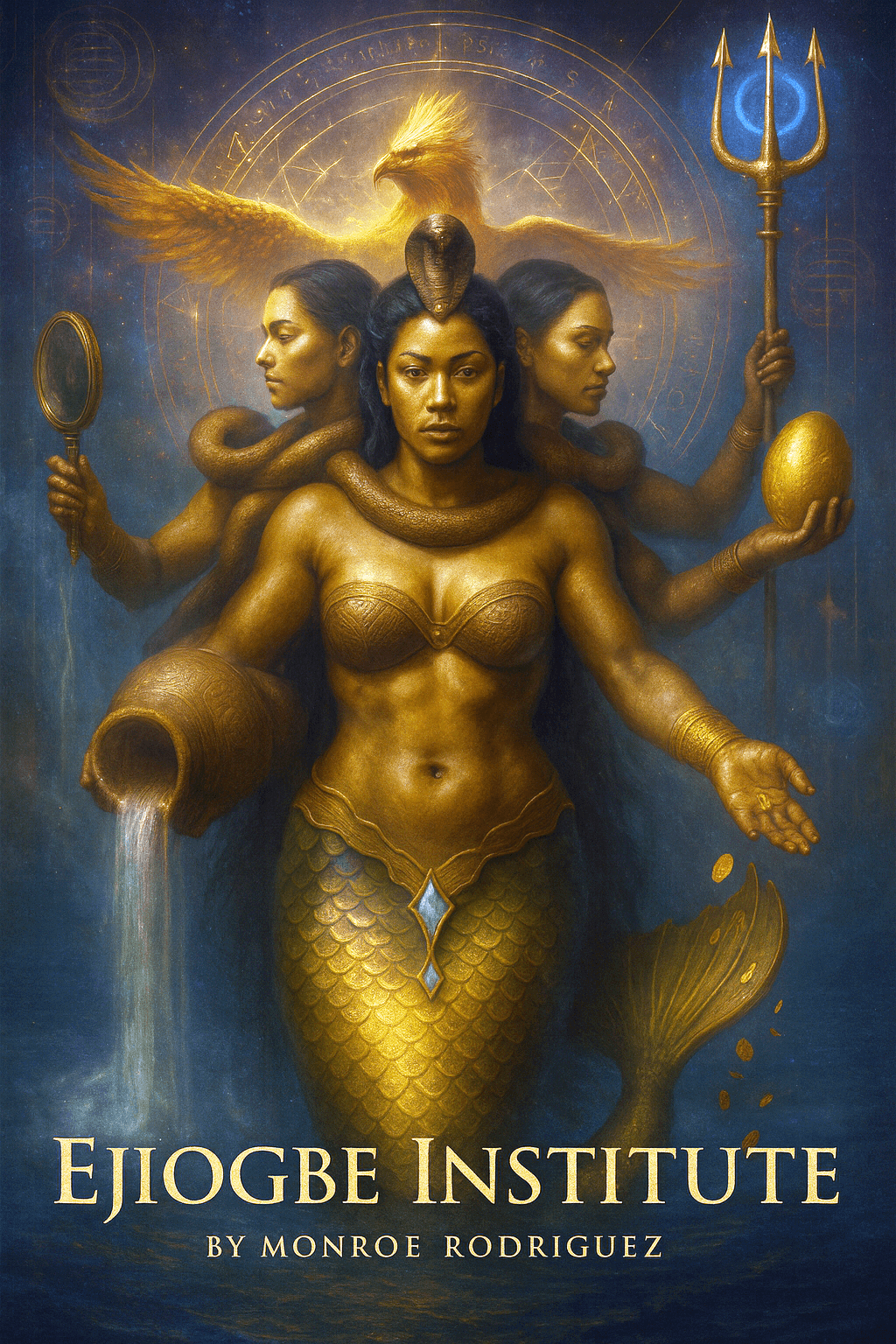
The Forgotten Warriors: Haitian Women Who Forged a Nation
Beyond the Famous Names: The Female Heroes of the Haitian Revolution
When we speak of the Haitian Revolution, we often hear the thunderous names of Toussaint Louverture, Jean-Jacques Dessalines, and Henri Christophe. These men rightfully claim their place in history as architects of the world's first successful slave rebellion. But revolutions are not built by heroes alone—they are sustained by countless acts of courage, many performed by those whose names history has nearly erased.
The women of Haiti's revolution were not bystanders watching from the sidelines. They were generals commanding troops, priestesses channeling divine power, seamstresses stitching symbols of nationhood, and warriors whose defiance echoed across battlefields. Their stories deserve more than footnotes. They deserve to be told in full.
Abdaraya Toya: The Warrior Aunt
In the markets of Dahomey, she was born free. In the plantations of Saint-Domingue, she was enslaved alongside a young man named Jean-Jacques Dessalines. But Abdaraya Toya—known also as Victoria Montou—would not remain in chains.
Dessalines called her "aunt," a title that carried weight beyond family ties. It spoke to her wisdom, her authority, and her unshakeable presence on the battlefield. Toya led soldiers with the precision of a trained general, her voice cutting through the chaos of war to rally troops and direct strategy.
When Dessalines declared himself Emperor of Haiti in 1804, he elevated Toya to the rank of Duchess—a recognition that her contributions were not merely supportive but foundational. At her death, Haiti honored her with a state funeral, acknowledging that empires are built not just by emperors, but by the warriors who clear the path to freedom.
Dédée Bazile: The Keeper of Sacred Duty
History remembers Marie Sainte Dédée Bazile as "Défilée-La-Folle"—the mad woman. But madness and profound clarity sometimes wear the same face.
Trauma had marked Dédée's life, whether through violence or devastating loss during the revolution's brutal years. Yet when Emperor Dessalines was assassinated in 1806 and his enemies left his body to rot in the streets, it was Dédée who acted when others turned away.
She gathered the scattered remains of Haiti's founding father, piece by piece, and ensured he received the burial befitting a leader who had broken the chains of an entire people. In a world that called her mad, Dédée performed perhaps the sanest act of all: she chose loyalty over fear, duty over safety.
Sanité Bélair: Death Before Dishonor
Suzanne "Sanité" Bélair climbed the military ranks not through connection but through competence. Under Toussaint Louverture's command, she rose from sergeant to lieutenant, proving herself on battlefields where courage was the only currency that mattered.
When French forces captured her alongside her husband Charles Bélair, they offered her the courtesy extended to women: execution by firing squad rather than the more brutal methods reserved for male rebels. But even in death, Sanité demanded to be treated as the soldier she was.
Standing before the firing squad, she refused the blindfold. Her last words rang out clear and defiant: "Viv libète! A ba esclavaj!" ("Long live freedom! Down with slavery!") She faced her executioners with eyes wide open, transforming her death into a declaration that would outlive them all.
Cécile Fatiman: The Sacred Spark
Some historians question whether she existed. Others debate her origins. But the power of Cécile Fatiman's story transcends the boundaries of documented fact—it lives in the realm of revolutionary truth.
As a mambo, a Vodou priestess, Fatiman presided over the ceremony at Bois Caïman in August 1791. Under the cover of night, enslaved people gathered to make sacred oaths, to channel the power of the lwa, and to declare their collective will for freedom.
Possessed by divine spirit, Fatiman became the vessel through which liberation was prophesied and proclaimed. Within a week of that ceremony, plantations across Saint-Domingue were burning. The revolution had begun, sparked by the sacred fire she helped kindle.
Marie-Claire Heureuse Félicité: The Empress of Compassion
Power can corrupt, but it can also create space for mercy. Empress Marie-Claire Heureuse Félicité, wife of Dessalines, chose the latter path.
During the siege of Jacmel in 1800, she broke through enemy lines not to deliver weapons but to bring food, medicine, and comfort to the suffering. As Empress, she balanced her husband's iron will with her own quiet strength, proving that leadership could be both fierce and compassionate.
Her legacy reminds us that revolutions succeed not only through force but through the care leaders show for those they fight to protect.
Catherine Flon: The Seamstress of Independence
In 1803, as Haiti prepared to declare its independence, the new nation needed a flag. Catherine Flon, a skilled seamstress, took the French tricolor and performed an act both simple and profound: she removed the white stripe, leaving only red and blue.
Blue for the unity of Black and mixed-race Haitians. Red for the blood spilled in the struggle for freedom. With needle and thread, Flon created the symbol that would fly over the world's first Black republic.
Her hands held no weapon, but her work armed a nation with identity and pride.
Marie-Jeanne Lamartinière: Beauty and Battle
Marie-Jeanne Lamartinière carried water to wounded soldiers and wielded a sword with equal skill. Beautiful and fearless, she moved through battlefields as both healer and warrior.
Witnesses recorded her killing a man who tried to steal her water gourd—not out of cruelty, but to spare him from the worse fate that awaited him at the hands of other soldiers. In her actions, mercy and justice intertwined.
Reclaiming the Complete Story
These women were not supporting characters in someone else's revolution. They were protagonists in their own right, writing chapters of Haitian independence with their courage, their sacrifice, and their refusal to accept anything less than freedom.
To tell Haiti's story without their voices is to tell only half the truth. They were generals and foot soldiers, spiritual leaders and practical organizers, symbols of hope and instruments of change. They carried the revolution forward not as helpers to the "real" heroes, but as heroes themselves.
Their names deserve to echo through history as loudly as any emperor's. In remembering them, we honor not just their individual courage but the fundamental truth that revolutions belong to all who dare to fight for freedom—regardless of the gender of the hands that hold the sword, stitch the flag, or light the sacred fire.
Freedom has always been a collective creation. These women helped forge it, and their legacy belongs not in the margins of history but at its very center.
